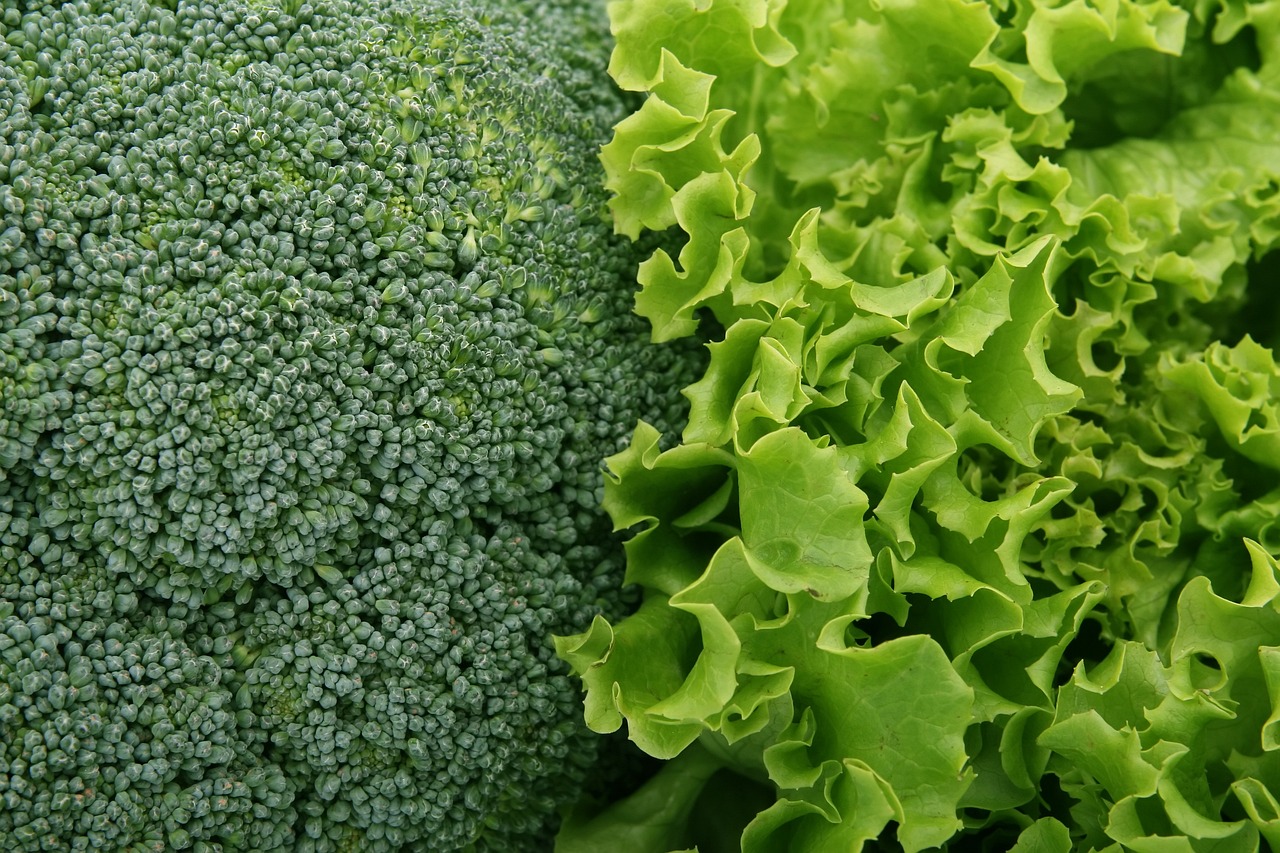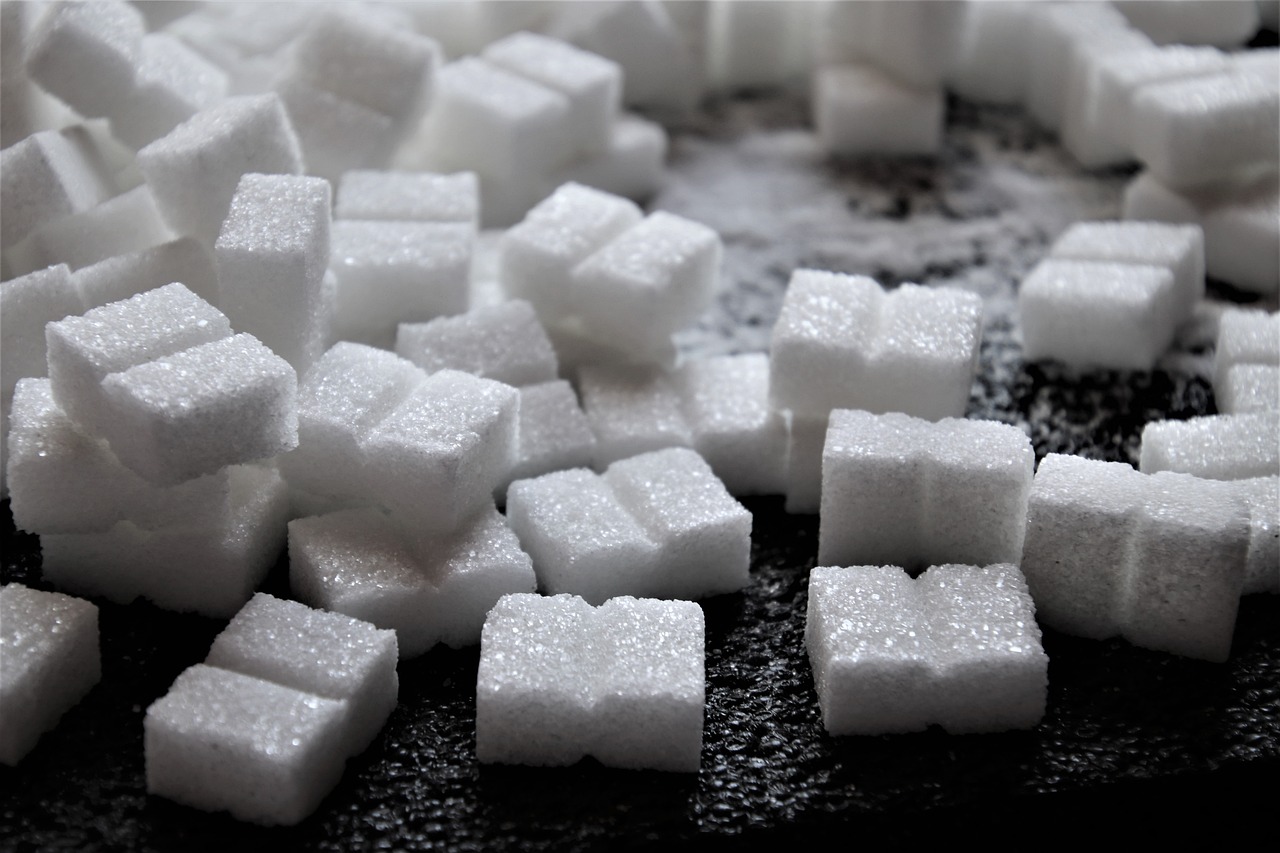It's no wonder all the internet talks about is gut health, as our gut plays a pivotal role in overall health, influencing everything from our immune system to mental well-being. Maintaining a healthy gut isn't just about dodging uncomfortable bloating and constipation; it's about a lifestyle that supports and maintains gut health. So, here are 10 golden rules to keep your digestive tract humming happily.
1. Fiber Is Your Friend
Fibre is the cornerstone of gut health. Fibre helps sweep through your digestive tract, aiding in smooth bowel movements. It also feeds the good bacteria in your gut, promoting a balanced microbiome. From crunchy vegetables to hearty whole grains, packing your plate with high-fibre foods is a simple yet effective strategy.
 Image by Robert Owen-Wahl from Pixabay
Image by Robert Owen-Wahl from Pixabay
2. Stay Hydrated
Drinking enough water is like giving your gut a gentle river to float everything along smoothly. Water helps dissolve fats and soluble fibre, allowing these substances to pass through your system more effortlessly. Staying well-hydrated also prevents constipation, a common gut health foe.
 Image by Kawita Chitprathak from Pixabay
Image by Kawita Chitprathak from Pixabay
3. Embrace Fermented Foods
Fermented foods are like a live concert for your gut bacteria, delivering a potent dose of probiotics that dance through your digestive system. Yogurt, kimchi, sauerkraut, and kefir are packed with these beneficial microbes, aiding in digestion and strengthening your immune system.
 Image by Dongtan Ko from Pixabay
Image by Dongtan Ko from Pixabay
4. Limit Processed Foods
Often high in sugar and low in fiber, processed food can disrupt your gut's delicate balance, leading to an unhappy microbiome. By cutting down on processed snacks and meals, you encourage a more diverse and resilient community of gut bacteria.
 Image by Steve Buissinne from Pixabay
Image by Steve Buissinne from Pixabay
5. Get Moving
Exercise isn't just for your muscles and mood; it's also great for your gut. Regular physical activity encourages the movement of food through your digestive system, reducing the risk of constipation. It can also enhance the diversity of your gut microbiome, contributing to a stronger, more robust gut.
 Image by Steve Buissinne from Pixabay
Image by Steve Buissinne from Pixabay
6. Stress Less
Your gut and brain are in constant conversation, thanks to the gut-brain axis. High stress levels can disrupt this dialogue, leading to digestive discomfort and imbalances in gut bacteria. Finding ways to relax, whether through meditation, yoga, or a leisurely walk, can soothe your gut and keep the conversation flowing smoothly.
 Image by StockSnap from Pixabay
Image by StockSnap from Pixabay
7. Chew Your Food
It might seem simple, but chewing your food thoroughly is like prepping it for a smooth journey down your digestive tract. Breaking food down into smaller pieces makes it easier for your stomach to digest, reducing the risk of indigestion and bloating.
8. Diversify Your Diet
A varied diet is like a multicultural festival for your gut, introducing it to a wide range of nutrients and fibers that support a healthy microbiome. Eating a rainbow of fruits, vegetables, legumes, and grains ensures your gut bacteria have plenty to feast on. This diversity not only supports your gut health but also enhances your overall nutrition.
 Image by Jerzy Górecki from Pixabay
Image by Jerzy Górecki from Pixabay
9. Listen to Your Gut
Paying attention to how different foods affect your body can help you tailor your diet to suit your gut's needs. If certain foods consistently make you feel bloated or uncomfortable, it might be worth investigating further. Keeping a food diary can be a helpful tool in identifying potential irritants and crafting a gut-friendly diet.
 Image by Darko Djurin from Pixabay
Image by Darko Djurin from Pixabay
10. Seek Professional Advice
If you're struggling with persistent gut health issues, it's important to consult a healthcare professional. They can offer tailored advice, diagnose underlying conditions, and guide you towards effective treatments. Remember, when it comes to your health, it's always better to seek expert input rather than navigate the complexities alone.
 Image by Darko Stojanovic from Pixabay
Image by Darko Stojanovic from Pixabay
Navigating the path to gut health can sometimes feel like dodging landmines in a field of dietary choices and lifestyle habits. It's not just about adding the right foods and practices to your routine; it's equally important to know what to sidestep.
1. Overdoing Antibiotics
Antibiotics are medical marvels in fighting bacterial infections, but they don't discriminate between bad and good bacteria. Overuse can wipe out significant portions of your gut's beneficial bacteria, leading to imbalances. Of course, never skip antibiotics if they're medically necessary, but do have a conversation with your healthcare provider about the need and potential alternatives.
 Image by PublicDomainPictures from Pixabay
Image by PublicDomainPictures from Pixabay
2. Skipping Meals
Regularly skipping meals can throw your digestive system out of whack, leading to issues like bloating and irregular bowel movements. It can also negatively impact the balance of gut bacteria by disrupting the natural rhythm of your digestive process. Try to maintain a regular eating schedule to keep your digestive system running smoothly.
 Image by Tonda Tran from Pixabay
Image by Tonda Tran from Pixabay
3. High Stress Levels
Just as stress can affect your mental health, it can wreak havoc on your gut health too. Stress signals can slow down or speed up your digestive system, leading to a variety of uncomfortable symptoms. Finding effective stress management techniques, such as meditation or regular exercise, can help keep your gut in a zen state.
 Image by Peggy und Marco Lachmann-Anke from Pixabay
Image by Peggy und Marco Lachmann-Anke from Pixabay
4. Excess Alcohol Consumption
While the occasional drink may be enjoyable, excessive alcohol intake can damage the lining of your gut and alter the balance of your gut microbiome. This imbalance can lead to digestive issues and negatively affect nutrient absorption. Moderation is key when it comes to alcohol and gut health.
 Image by Aline Ponce from Pixabay
Image by Aline Ponce from Pixabay
5. Too Much Sugar and Artificial Sweeteners
Sugars and artificial sweeteners are like fast food for bad bacteria and yeast in your gut, potentially leading to overgrowth and imbalance. They can also contribute to inflammation and exacerbate conditions like leaky gut syndrome. Cutting down on sugary foods and drinks can support a healthier gut microbiome.
 Image by 🌸♡💙♡🌸 Julita 🌸♡💙♡🌸 from Pixabay
Image by 🌸♡💙♡🌸 Julita 🌸♡💙♡🌸 from Pixabay
6. Ignoring Fibre
Not incorporating enough fibre in your diet is a missed opportunity for your gut health. Fibre helps regulate bowel movements and supports a healthy microbiome by feeding beneficial gut bacteria. Ignoring fibre-rich foods like fruits, vegetables, and whole grains can lead to digestive distress and microbial imbalances.
 Image by Katharina N. from Pixabay
Image by Katharina N. from Pixabay
7. Lack of Sleep
Skimping on sleep doesn't just leave you feeling groggy; it can also negatively impact your gut health. Poor sleep patterns have been linked to changes in the gut microbiota, which can affect your overall health. Ensuring you get enough quality sleep is essential for maintaining a healthy gut.
 Image by JayMantri from Pixabay
Image by JayMantri from Pixabay
8. Insufficient Hydration
Not drinking enough water can lead to dehydration, negatively affecting your gut's ability to move waste efficiently. This can result in constipation and discomfort. Keeping hydrated is a simple yet effective way to support your digestive health.
 Image by Colin Behrens from Pixabay
Image by Colin Behrens from Pixabay
9. Overindulgence in Processed Foods
Processed foods are often low in fibre and high in additives that can upset your gut's natural balance. Frequent consumption can contribute to a decline in gut health, leading to digestive issues and a decreased diversity of gut bacteria. Focusing on whole, unprocessed foods is a better choice for your gut.
10. Ignoring Your Gut's Signals
Your body has a way of telling you when something isn't right, especially your gut. Ignoring signals like bloating, gas, or discomfort can prevent you from addressing potential issues. Listening to your body and adjusting your diet or lifestyle accordingly is crucial for maintaining good gut health.
 Image by Martin Büdenbender from Pixabay
Image by Martin Büdenbender from Pixabay
KEEP ON READING

The Most Popular Chocolate Bars in the USA








